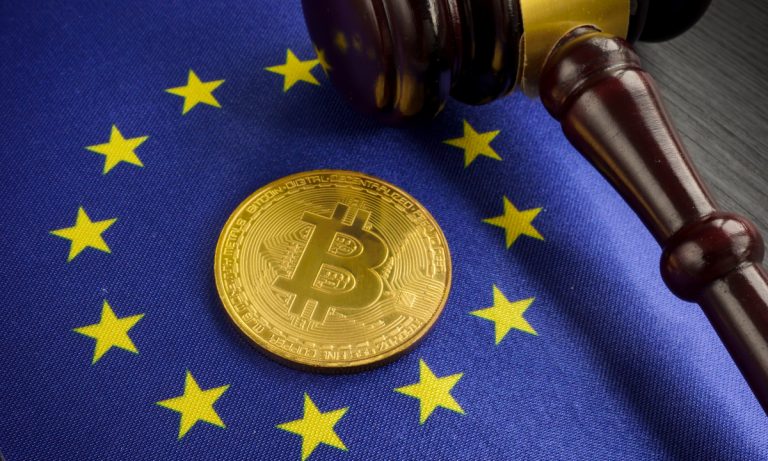
The world of digital assets has been a topic of heated debate and intense scrutiny in recent times. The surge in popularity of cryptocurrencies and the subsequent boom in the digital asset market have brought both excitement and concern among investors and governments alike. Amidst this growing landscape, India’s Supreme Court has taken a stance on the matter, criticizing the federal government for its delay in implementing crypto regulations.
The Digital Asset Market: A Double-Edged Sword
The digital asset market, also known as the cryptocurrency market, has witnessed a meteoric rise in the past decade. Pioneered by Bitcoin in 2009, these decentralized digital currencies promised a revolution in the financial world. As a result, countless investors and traders entered the market, seeking fortunes and a new financial frontier.
However, the unregulated nature of the digital asset market has also been a cause for concern. Reports of scams, fraud, and penalty cases have been on the rise, with investors falling prey to Ponzi schemes and unscrupulous actors. Amidst the rising reports of penalty cases in the digital asset market, the Supreme Court of India felt compelled to address the situation and urge the government to take action.
The Supreme Court’s Critique of the Federal Government
In a landmark statement, the Supreme Court of India expressed its disappointment with the federal government’s approach to regulating cryptocurrencies. The court cited the need for a comprehensive and balanced regulatory framework that would protect investors while fostering innovation in the digital asset space. It highlighted that the delay in formulating such regulations has exposed investors to risks and uncertainties.
The court also acknowledged the transformative potential of blockchain technology, which underpins most cryptocurrencies. It recognized that distributed ledger technology could revolutionize various industries, including finance, supply chain, and governance. However, it reiterated that such potential could only be fully realized with appropriate regulations in place.
The Call for Investor Protection
Amidst the rising reports of penalty cases in the digital asset market, the Supreme Court of India underscored the importance of investor protection. It emphasized that while the allure of quick gains might be enticing, it should not come at the expense of robust safeguards for investors. A lack of proper regulations could expose unsuspecting investors to fraud and financial loss.
To address these concerns, the court suggested that the government should consider a balanced approach to regulation. It should aim to protect investors from fraudulent schemes while promoting genuine innovations in the digital asset space. Striking this balance would not only boost investor confidence but also encourage responsible participation in the market.
Understanding the Delay in Crypto Regulations
While the Supreme Court’s criticism of the federal government is clear, understanding the reasons behind the delay in crypto regulations is essential. The digital asset market is a complex and evolving landscape, and crafting effective regulations requires thorough research and analysis. The government must consider the potential impact on financial stability, consumer protection, and the broader economy.
Furthermore, international precedents and best practices in regulating cryptocurrencies should also be taken into account. Many countries have already formulated their regulatory frameworks, and India could learn from their successes and shortcomings.
The Global Perspective on Crypto Regulations
Amidst the rising reports of penalty cases in the digital asset market, the Supreme Court of India’s critique highlights the global importance of crypto regulations. Different countries have adopted various approaches to deal with the challenges posed by cryptocurrencies.
Some nations have embraced cryptocurrencies, viewing them as a legitimate asset class and even recognizing them as legal tender. On the other hand, several countries have imposed stringent regulations, outright banning cryptocurrency trading and usage. The diversity in approaches reflects the complexities of the digital asset market and the differing views on its potential risks and rewards.
Striking a Balance: The Way Forward
As India stands at a crossroads in its approach to crypto regulations, striking a balance between investor protection and innovation remains paramount. The government must collaborate with industry experts, financial institutions, and other stakeholders to develop a comprehensive regulatory framework.
A key aspect of this framework should be a robust mechanism for penalizing fraudulent actors and penalizing cases in the digital asset market. By holding wrongdoers accountable, the government can send a strong message that fraudulent activities will not be tolerated.
Simultaneously, nurturing a conducive environment for legitimate players to thrive will foster innovation and technological advancement. Blockchain technology has far-reaching implications beyond cryptocurrencies, and India should position itself as a leader in the digital revolution.
Amidst the rising reports of penalty cases in the digital asset market, the Supreme Court of India has expressed its concern over the delay in crypto regulations. The unregulated nature of the digital asset market has exposed investors to risks and uncertainties, necessitating a balanced regulatory framework.
The government must prioritize investor protection while promoting innovation in the digital asset space. Collaborating with experts and industry stakeholders, India can pave the way for responsible participation in the digital asset market.
As the global debate on crypto regulations continues, finding the right balance will be crucial in unlocking the full potential of blockchain technology while safeguarding investors and the financial system.